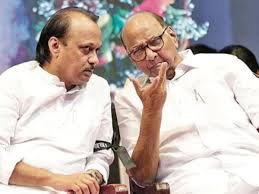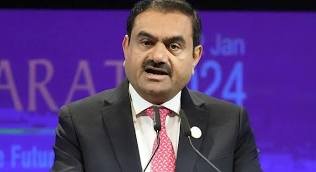In a major report, the FATF warns that terrorists are using e-commerce platforms, encrypted payment systems, and VPNs to fund and execute deadly attacks.
BY PC Bureau
In a startling revelation, the Financial Action Task Force (FATF) has confirmed that key materials used in the 2019 Pulwama suicide bombing, which killed 40 CRPF personnel, were purchased through global e-commerce giant Amazon. The disclosure is part of FATF’s latest Comprehensive Update on Terrorist Financing Risks, released on July 8, which flags the growing exploitation of online shopping, payment platforms, and VPNs by terror outfits to evade detection.
The 62-page report, compiled after inputs from over 80 jurisdictions and hundreds of case studies, underscores a dangerous trend: terrorists are increasingly blending traditional methods like hawala with new-age tools such as e-wallets, crowdfunding apps, and anonymous shipping services.
“A significant component used in the Pulwama IED was aluminium powder, which was ordered online. This facilitated discreet procurement under the guise of regular civilian use,” the report noted, without naming Amazon directly. Indian intelligence and counterterrorism agencies had earlier traced the purchase to an Amazon storefront.
The FATF, the global watchdog against money laundering and terror financing, said the Pulwama attack is emblematic of how terrorists are “abusing legitimate online services to facilitate deadly operations.” The report also raised concern over the lack of consistent regulations governing e-commerce and digital payment ecosystems, especially across international borders.
E-commerce, Payments, and VPNs: The New Face of Terror Finance
The FATF flagged a marked increase in terrorist use of e-commerce platforms, including mainstream shopping apps and shipping services, to acquire components like chemicals, electronics, and detonators.
“Payments were routed through encrypted wallets, and VPNs were used to mask IP addresses and locations. This makes tracking nearly impossible for authorities unless there is deep technical cooperation between nations,” the report stated.
READ: WAR CRIME: Myanmar Junta Bombs School, IDP Camps; 13 Dead
It also highlighted the misuse of payment platforms like PayPal, crypto exchanges, and even charitable crowdfunding portals. In one cited case, an attacker involved in the 2022 Gorakhnath Temple incident had transferred ₹6.7 lakh through PayPal, using VPNs to avoid scrutiny.
⚡ BIG BREAKING: Explosives for 2019 Pulwama attack were bought from Amazon, FATF revealed:
In its report ‘Comprehensive Update on Terrorist Financing Risks’ Financial Action Task Force (FATF) detailed that key components such as ‘Aluminium Powder’ for the February 2019 Pulwama… pic.twitter.com/MpGtfy3LSY
— OSINT Updates (@OsintUpdates) July 8, 2025
A Familiar Culprit: Pakistan’s Role Under Renewed Scrutiny
The FATF report stops short of naming countries, but in a veiled reference to Pakistan, it noted that some terrorist organisations “continue to receive financial and logistical support from state actors.” It warned that without decisive international pressure, such states could remain safe havens for extremist financing.
India is expected to use this report to push for Pakistan’s re-inclusion on the FATF “Grey List,” citing fresh evidence from the April 2025 Pahalgam terror attack, in which two Pakistani nationals were involved.
“The pattern is clear. From Pulwama to Pahalgam, we are seeing repeat offenses rooted in the same network. FATF must take decisive steps,” a senior official from India’s Financial Intelligence Unit (FIU) told The Herald on condition of anonymity.
Global Threat, Local Impact
The report highlights that over 69% of the countries evaluated still struggle to effectively investigate or prosecute terror financing cases. Meanwhile, terrorist networks are exploiting these weaknesses to scale up operations.
In the Pulwama case, Indian agencies had arrested a network of 19 individuals, seven of whom were foreign nationals. A large portion of the material—including mobile phones, wiring, and explosive chemicals—was purchased using online tools, often from foreign vendors shipping into India with minimal scrutiny.
READ: Deadly Infighting Among Chin Rebel in Myanmar Triggers Humanitarian Crisis in Mizoram
The attack on February 14, 2019, was carried out by a Jaish-e-Mohammed suicide bomber who rammed an explosive-laden SUV into a CRPF convoy in Jammu and Kashmir. It was one of the deadliest terror strikes in India in recent years, leading to a sharp military escalation with Pakistan and widespread public outrage.
FATF’s Call for Global Action
The FATF has urged immediate and coordinated reforms:
-
Enhanced due diligence by e-commerce platforms and payment providers
-
Stronger public-private intelligence sharing across jurisdictions
-
Inclusion of virtual asset service providers (VASPs), VPN firms, and shipping intermediaries under anti-terror finance regulations
-
Tighter scrutiny on dual-use goods (items that can serve both civilian and military purposes)
“The fight against terrorism is no longer just on the battlefield—it is online, encrypted, and invisible. Regulators must catch up,” the report concluded.
India’s Next Steps
Following the FATF report, sources say the Indian government is preparing a fresh diplomatic push to hold Pakistan accountable for its alleged continued patronage of terror groups. New Delhi is expected to submit an updated dossier to the FATF Review Group ahead of the October 2025 plenary session.
Meanwhile, Indian agencies are reviewing current oversight mechanisms on e-commerce and payment gateways, and are likely to recommend legal amendments to plug the regulatory loopholes exposed by the Pulwama attack investigation.
As digital tools evolve, so do the methods of terror financing. The FATF report is not just a warning—it’s a call to action. Whether the international community heeds it, remains to be seen.













